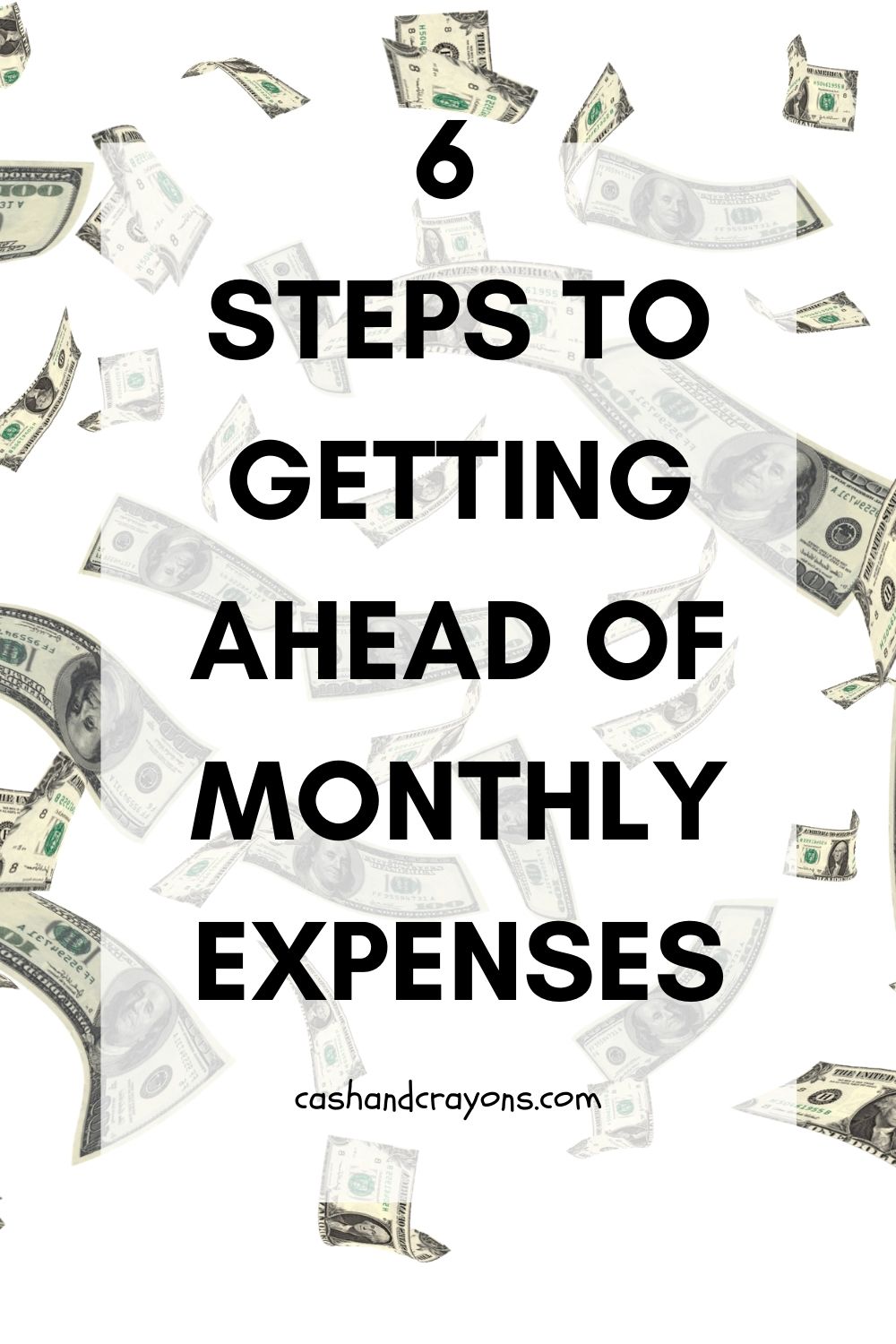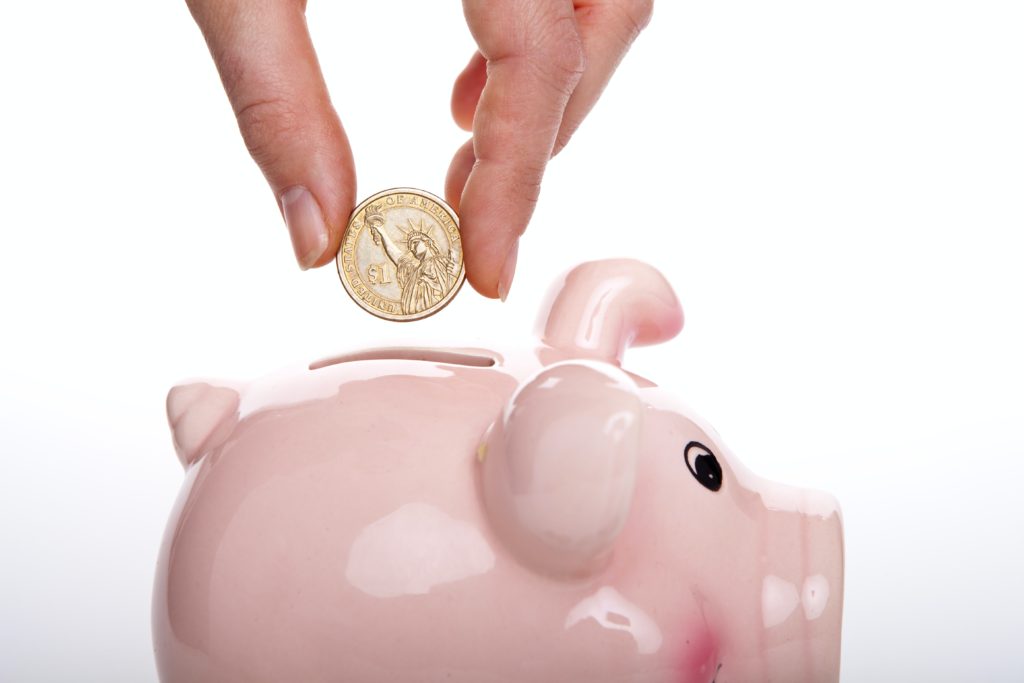This post is all about getting a month ahead of your expenses!

Dave Ramsey is the modern day money guru. His website is full of tips and tricks to “make real progress with your money”!
I once read an article on his site that suggested getting a month ahead of your expenses. I realized that this would help me immensely to track irregular paychecks and make a college-student-friendly budget!
Since getting a month ahead, we have never looked back. We have so much peace knowing we can map out our months’ expenses and not run out of money before the month is over!
With a little bit of work, YOU can achieve this peace with a month-ahead budget plan!
This post will teach you exactly how to do that!
Get a Month Ahead in Expenses
Step 1: Learn what it is

First, you’ve got to understand what it means to get a month ahead in expenses. I’ll give you a rundown:
- Gather all of the paychecks you receive for a month (say, October)
- Do not spend any of that money in October
- At the beginning of the next month (November, in this case), sort out these paychecks into your budget categories
For example, if you get paid $100 a week in October, then you have $400 for your November budget.
This budgeting habit is super helpful for those who have irregular paychecks (like me!). If you had one paycheck on the first of every month for $400, you might not need to get a month ahead of your expenses because you know what to expect. If you get weekly checks that are sometimes $60 and sometimes $140, then you might want to get a month ahead so you know exactly what you’ll be working with next month and it’s not a surprise.
Another great thing about getting a month ahead is that you are able to enjoy a peace of mind. If you have a big emergency on the last day of the month but you’ve already spent all of your October money, then you’re in trouble! If you have money in your bank account for November, then you have given yourself an extra month to figure out how you’ll pay for the emergency.
Finally, it feels really great to get organized in this way. When you budget a month ahead, you intentionally decide to set aside money for a while, which is a great habit to get used to.
Related: 8 Steps to Start Your Own Budget (+ free printable checklist!)
Step 2: Make it a goal!
Now that you know the basics and blessings of getting a month ahead, you can make a goal to achieve it!
Make sure to write down what your goal is, how long it will take, and your steps to get there.
Tell your plan to a partner, friend, or family member so that you have someone to be accountable to (plus, they can cheer you on)!
Related: How to Master the Art of Resolutions
Step 3: Save up

Now that you’ve got a goal set, it’s time to start saving money!
If you are currently living paycheck to paycheck, you need to start setting aside money so that you don’t have to spend each check right as it comes.
Instead, you’ll be able to set it aside for a while until you have enough to set aside a whole month’s worth of expenses!
Step 4: Cut expenses
If you are having a hard time saving up a month’s worth of expenses or you are interested in speeding up the process, try to cut your expenses!
You might take a break from going out to eat or watching cable TV. You might carpool to save gas money or turn off the heater to save on bills.
For a lot more saving tips, try: 15 Ways to Save Money Now
Step 5: Look for a jumpstart
It can be even more helpful to kickstart your month-ahead goal by utilizing a chunk of money for a jumpstart!
If you are getting a tax return, receiving a scholarship, selling a car, or getting a work bonus, you might choose to use this extra chunk of money to get started on your month ahead goal!
We used FAFSA money to start paying our expenses a month early. Best choice we ever made!
Step 6: Enjoy!
Finally, you’ll be able to enjoy peace of mind and an organized budget when you get a month ahead of your expenses!
Take note of how awesome it feels to be ahead of your money instead of waiting desperately for the next paycheck.
Then, go and teach your friends how to do it too!
In this post, you learned how to get a month ahead in your expenses! Congrats!

Other Posts You May Like:
5 Categories You Need in Your Budget
4 Tips to Make Budgeting Bearable